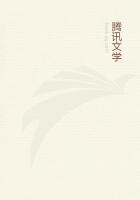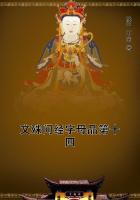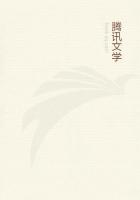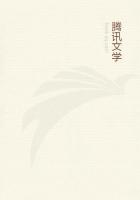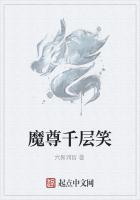And here an insurmountable difficulty barred the way. There were some seventeen shillings in English silver: the rest was Chile; and the Chile dollar, which had been taken at the rate of six to the pound sterling, was practically their smallest coin. It was decided, therefore, to divide the pounds only, and to throw the shillings, pence, and fractions in a common fund. This, with the three pound fourteen already in the heel, made a total of seven pounds one shilling.
"I'll tell you," said Wicks. "Let Carthew and Tommy and me take one pound apiece, and Hemstead and Amalu split the other four, and toss up for the odd bob."
"O, rot!" said Carthew. "Tommy and I are bursting already.
We can take half a sov' each, and let the other three have forty shillings."
"I'll tell you now--it's not worth splitting," broke in Mac. "I've cards in my chest. Why don't you play for the slump sum?"
In that idle place, the proposal was accepted with delight.
Mac, as the owner of the cards, was given a stake; the sum was played for in five games of cribbage; and when Amalu, the last survivor in the tournament, was beaten by Mac, it was found the dinner hour was past. After a hasty meal, they fell again immediately to cards, this time (on Carthew's proposal) to Van John. It was then probably two P.M. of the 9th February; and they played with varying chances for twelve hours, slept heavily, and rose late on the morrow to resume the game. All day of the 10th, with grudging intervals for food, and with one long absence on the part of Tommy from which he returned dripping with the case of sherry, they continued to deal and stake. Night fell: they drew the closer to the fire. It was maybe two in the morning, and Tommy was selling his deal by auction, as usual with that timid player; when Carthew, who didn't intend to bid, had a moment of leisure and looked round him. He beheld the moonlight on the sea, the money piled and scattered in that incongruous place, the perturbed faces of the players; he felt in his own breast the familiar tumult; and it seemed as if there rose in his ears a sound of music, and the moon seemed still to shine upon a sea, but the sea was changed, and the Casino towered from among lamplit gardens, and the money clinked on the green board. "Good God!" he thought, "am I gambling again?" He looked the more curiously about the sandy table. He and Mac had played and won like gamblers; the mingled gold and silver lay by their places in the heap. Amalu and Hemstead had each more than held their own, but Tommy was cruel far to leeward, and the captain was reduced to perhaps fifty pounds.
"I say, let's knock off," said Carthew.
"Give that man a glass of Buckle," said some one, and a fresh bottle was opened, and the game went inexorably on.
Carthew was himself too heavy a winner to withdraw or to say more; and all the rest of the night he must look on at the progress of this folly, and make gallant attempts to lose with the not uncommon consequence of winning more. The first dawn of the 11th February found him well-nigh desperate. It chanced he was then dealer, and still winning. He had just dealt a round of many tens; every one had staked heavily; the captain had put up all that remained to him, twelve pounds in gold and a few dollars; and Carthew, looking privately at his cards before he showed them, found he held a natural.
"See here, you fellows," he broke out, "this is a sickening business, and I'm done with it for one." So saying, he showed his cards, tore them across, and rose from the ground.
The company stared and murmured in mere amazement; but Mac stepped gallantly to his support.
"We've had enough of it, I do believe," said he. "But of course it was all fun, and here's my counters back. All counters in, boys!" and he began to pour his winnings into the chest, which stood fortunately near him.
Carthew stepped across and wrung him by the hand. "I'll never forget this," he said.
"And what are ye going to do with the Highway boy and the plumber?" inquired Mac, in a low tone of voice. "They've both wan, ye see."
"That's true!" said Carthew aloud. "Amalu and Hemstead, count your winnings; Tommy and I pay that."
It was carried without speech: the pair glad enough to receive their winnings, it mattered not from whence; and Tommy, who had lost about five hundred pounds, delighted with the compromise.
"And how about Mac?" asked Hemstead. "Is he to lose all?"
"I beg your pardon, plumber. I'm sure ye mean well," returned the Irishman, "but you'd better shut your face, for I'm not that kind of a man. If I t'ought I had wan that money fair, there's never a soul here could get it from me. But I t'ought it was in fun; that was my mistake, ye see; and there's no man big enough upon this island to give a present to my mother's son.
So there's my opinion to ye, plumber, and you can put it in your pockut till required."
"Well, I will say, Mac, you're a gentleman," said Carthew, as he helped him to shovel back his winnings into the treasure chest.
"Divil a fear of it, sir! a drunken sailor-man," said Mac.
The captain had sat somewhile with his face in his hands: now he rose mechanically, shaking and stumbling like a drunkard after a debauch. But as he rose, his face was altered, and his voice rang out over the isle, "Sail, ho!"
All turned at the cry, and there, in the wild light of the morning, heading straight for Midway Reef, was the brig Flying Scud of Hull.

